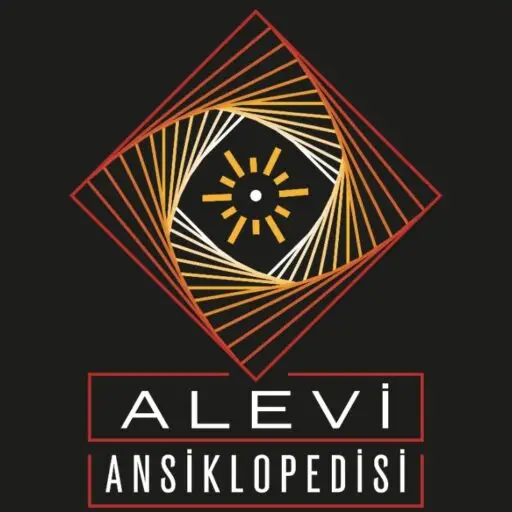Alevis and Civil Society
* This entry was originally written in Turkish.
Since the 1980s, Turkish Alevism has taken shape largely within the organisational matrix of civil society. The transformation from rural, community-oriented ritual practice to the relatively anonymous spaces of urban civil society has entailed both opportunities and constraints for Alevis, as they endeavour to articular themselves as a legitimate “religious minority” in relation to the persistently discriminatory position of Turkish laicism and the Directorate of Religious Affairs (Diyanet İşleri Başkanlığı, DİB).A Shifting Organisational Field
Together with the rise of neoliberalism during the 1980s and 1990s, Turkey witnessed a flourishing of civil society institutions-foundations (vakıflar) and associations (dernekler)-that continues today (Walton 2017). In contrast to the earlier focus on political society and political parties in the 1960s and 1970s (Massicard 2013), the Alevi Movement pivoted to civil society during this era.
Broadly speaking, two Alevi currents achieved articulation within civil society at this time. On one hand, institutions and intellectuals orbiting İzzettin Doğan consolidated around the Cem Foundation, which, importantly, coordinates a broad media network as well. On the other hand, a second current of the Alevi Movement took shape around the of Pir Sultan Abdal Associations, the Hacı Bektaş Foundation and affiliated institutions. Two umbrella networks express these two currents of the Alevi civil society movement: the Federation of Alevi Foundations for the former, and the Alevi-Bektaşi Federation for the latter. Certain theological and ritual differences define the distinction between these two currents-the Cem Foundation and its affiliates are more likely to emphasize the continuity between Alevism and Islam as a whole, while the Pir Sultan Abdal and Hacı Bektaş current is more open to images of Alevism that foreground its distinction from both Sunni and Shi’i Islam. The most important difference between the two, however, is political. The Federation of Alevi Foundations espouses an accommodationist position that argues for the inclusion of Alevism under the mantle of Turkish laicism, while the Alevi Bektaşi Federation tends toward an abolitionist position in relation to the state organs of Sunni Islam, and the Directorate of Religious Affairs in particular.
Transformations
More generally, the consolidation of Alevism within civil society has had ambivalent effects on Alevi practices, communities, and horizons of possibility. The aspiration to “religious freedom” (Hurd 2014) orients and animates Alevi civil initiatives. In general, civil society privileges a liberal understanding of religion as a matter of individual choice (Walton 2013); this, in turn, has fostered the institutionalization of a variety of images of Alevism. Some foundations and associations that seek to represent Alevism in civil society advocate highly divergent understandings of Alevi theology and history-for instance, the controversial Ehl-i Beyt Foundation espouses a view of Alevism as essentially the same as Shi’i Islam. Simultaneously, organization within civil society, in tandem with mass migration from rural to urban contexts, has shifted the social and ritual ground of Alevism. Most notably, cem evleri in urban contexts are now frequently appendages of foundations or associations, rather than the epicentres of rural village life. In this respect, civil society represents and constitutes the adaptation of Alevism to urban life in Turkey, especially due to the persistent exclusion of Alevism from statist Sunni Islam.
Conclusion
Civil society has not entirely displaced political parties as an organisational nexus for Alevis, as persistent allegiance to both the Republican People’s Party (Cumhuriyet Halk Partisi; CHP) and other parties of the left and centre left indicate. However, the most vibrant and effective forms of Alevi organisation are currently deeply embedded within civil society. Alevi foundations and associations also provide key support for the forms of legal activism and “lawfare” that Alevis pursue in order to attain recognition and religious freedom, both within Turkey and in relation to global institutions such as the European Court of Human Rights. The degree to which civil society will continue to shape Alevis’ collective political sensibility and identity remains to be seen; for the time being, civil society offers the most robust institutional ground for Alevism in Turkey.
Dole, Christopher. 2012. Healing Secular Life: Loss and Devotion in Modern Turkey. Philadelphia: University of Pennsylvania Press.
Hurd, Elizabeth Shakman. 2014. “Alevis under Law: The Politics of Religious Freedom in Turkey.” Journal of Law and Religion 20: 416-435.
Massicard, Elise. 2013. The Alevis in Turkey and Europe: Identity and Managing Territorial Diversity. Abingdon: Routledge.
Walton, Jeremy F. 2013. “Confessional Pluralism and the Civil Society Effect.” American Ethnologist 40 (1): 182-200. https://doi.org/10.1111/amet.12013.
Walton, Jeremy F. 2015. Muslim Civil Society and the Politics of Religious Freedom in Turkey. Oxford: Oxford University Press.
Walton, Jeremy F., ve Çiçek İlengiz. 2024. “Alevism and the Politics of Religious Freedom.” İçinde The Oxford Handbook of Religion in Turkey, der. Caroline Tee, Fabio Vicini ve Philip C. Dorroll. Oxford: Oxford University Press.

